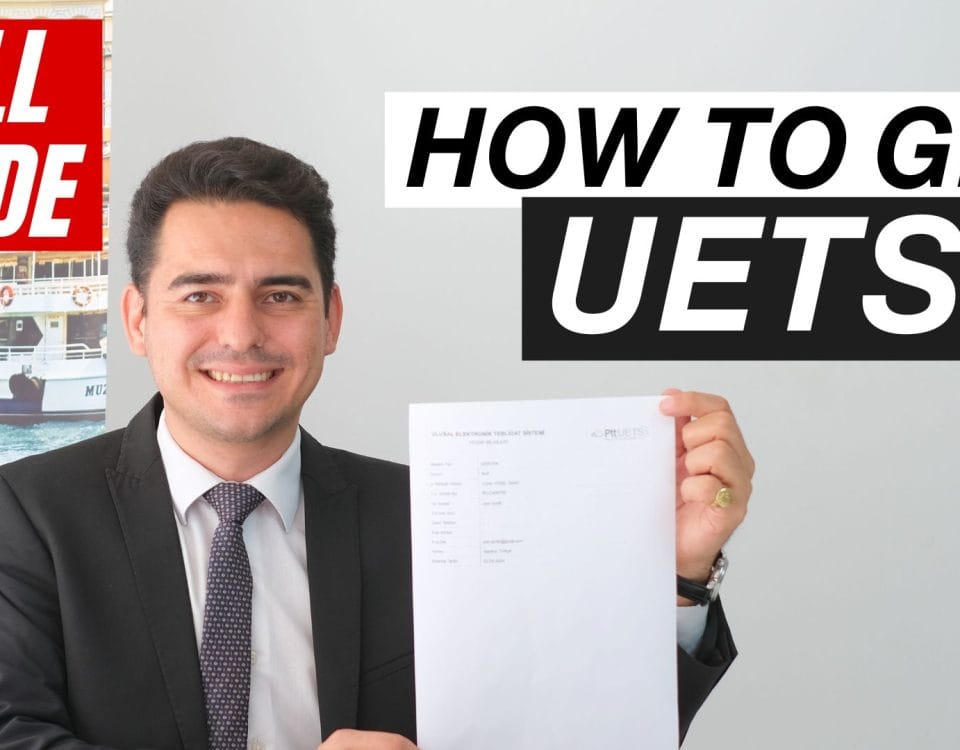Financial Matters for Residents In Turkey
Navigating the intricate web of financial matters is a vital task for residents in Turkey, where economic dynamics are as vibrant and diverse as the nation’s rich cultural tapestry. From handling personal finances, dealing with taxation, and understanding local banking practices to making informed investment decisions and securing real estate, the financial ecosystem in Turkey presents a unique blend of challenges and opportunities. As the country straddles both European and Asian markets, residents must adapt to a financial landscape influenced by global trends and regional specificity, with regulatory frameworks and economic policies that shape everyday financial transactions. It is imperative that individuals equip themselves with a robust understanding of this landscape to ensure financial stability and capitalize on the potential for growth, making the mastery of financial matters in Turkey not just an advantage but a necessity.
Understanding the Taxation System in Turkey
Understanding the taxation system in Turkey is essential for every resident to manage their finances effectively. The Turkish tax regime operates on a progressive income tax scale for individuals, with rates varying from 15% to 35% depending on income levels. In addition to income tax, residents must also be aware of Value Added Tax (VAT), which is applied to most goods and services, and can range from 1% to 18%, with certain luxury items taxed higher. Property taxes, stamp duty, and special consumption taxes on items like automobiles and alcohol also play a significant role in the fiscal landscape. Navigating this system requires a keen understanding of applicable deductions, exemptions, and tax credits available that can legally reduce one’s overall liability, making comprehensive knowledge of Turkish tax law a critical component of financial planning and stability in the country.
Navigating the nuances of Turkish tax law also means staying abreast of deadlines and submission requirements to avoid penalties. For instance, April 30th is a date to mark on every resident’s calendar, as it marks the deadline for annual income tax returns. It is crucial to maintain accurate records and receipts throughout the year to support any deductions claimed. The online tax portal, e-Devlet, simplifies the submission process, allowing residents to file returns and pay taxes electronically. Moreover, double taxation agreements with various countries can affect expatriates and international investors, potentially offering relief and preventing the taxation of the same income in multiple jurisdictions. Residents are encouraged to consult with a local tax professional to ensure compliance with Turkish tax regulations and to skillfully navigate the bilateral agreements that may pertain to them.
While residents can self-navigate the Turkish tax system to a degree, the complexity of some cases, particularly those involving international income streams, business ownership, or real property interests, often necessitates professional advice. Working with an accountant or tax advisor who is well-versed in both Turkish law and the individual’s circumstances ensures that taxpayers can capitalize on allowable deductions and credits, such as those for home office expenses, health insurance payments, or educational costs. It is also important for residents to keep an eye on legislative changes, as the Turkish government periodically adjusts tax laws, which can directly impact disposable income and investment strategies. Thus, becoming literate in the intricacies of the Turkish taxation system is an ongoing task, pivotal to securing financial well-being and can assist in effectively planning for future financial goals within the landscape of Turkey’s economy.
Managing Real Estate and Investment Portfolios
For residents of Turkey, managing real estate and investment portfolios requires a keen understanding of the local market fluctuations and legal regulations. The real estate sector has historically been a driving force in the Turkish economy, offering potentially lucrative opportunities for both domestic and foreign investors. However, it’s crucial to stay informed about the latest developments in property laws, zoning regulations, and taxation policies that can impact investment returns. Engaging with credible brokers, seeking the expertise of financial advisors, and leveraging online platforms for market analysis are indispensable strategies for those aiming to diversify their assets and secure appreciating real estate holdings. Additionally, exploring Turkey’s burgeoning sectors such as renewable energy, technology, and tourism can further bolster an investment portfolio, ensuring a balanced mix of stability and growth potential amidst the cyclic nature of the economy.
In addition to real estate, building a robust investment portfolio in Turkey often involves delving into equities, bonds, and mutual funds tailored to the investor’s risk appetite and financial goals. Navigating the nuances of the Borsa İstanbul, the country’s main stock exchange, demands vigilant monitoring of market indicators and geopolitical developments that can sway stock prices. Understanding the implications of monetary policies set by the Central Bank of the Republic of Turkey is equally critical, as they significantly influence the performance of financial instruments. Beginner investors are advised to start with conservative investment vehicles, such as government bonds or well-established mutual funds, before branching out into more volatile assets. Moreover, taking advantage of tax-advantaged investment accounts explicitly designed for long-term savings can maximize returns. It’s essential for investors to align their strategies with the guidance of financial consultants adept in the Turkish market to navigate the intricacies of investment and tap into the country’s economic growth momentum.
Beyond the domestic landscape, residents with an international outlook should consider the prospects and implications of diversifying their portfolios with global assets. The Turkish Lira’s volatility against major currencies underscores the importance of currency risk management. By investing in foreign real estate markets, international stocks, or exchange-traded funds (ETFs), investors can hedge against local economic fluctuations and benefit from different growth trajectories. However, it’s imperative to be mindful of the legalities surrounding foreign investments, the impact of fluctuating exchange rates, and the potential tax liabilities both in Turkey and abroad. Engagement with a financial advisor who understands cross-border investment strategies is advisable to navigate this complex area. Diligent risk assessment and strategic planning are the cornerstones of maintaining a well-rounded portfolio that aligns with long-term financial objectives while mitigating exposure to any single market’s uncertainty.
Navigating Banking and Retirement Savings Regulations
In Turkey, navigating the banking landscape requires a keen understanding of the regulatory environment, which is governed by the Banking Regulation and Supervision Agency (BDDK). Residents must familiarize themselves with the various types of accounts available, from current to savings and foreign currency, each with their specificities and benefits. Opening an account often involves presenting official identification and proof of residence. Furthermore, the underpinnings of retirement savings echo the country’s resolve to foster long-term financial security. The Private Pension System (Bireysel Emeklilik Sistemi, BES), a voluntary savings scheme with government incentives, serves as an essential complement to the state-provided social security system. Navigating these regulations demands diligence and a proactive approach, ensuring that individuals not only remain compliant but also take strategic advantage of the provisions designed to enhance their financial well-being in Turkey.
For expatriates and Turkish residents alike, adapting to the local banking norms is crucial; this includes comprehending the impact of fluctuating interest rates and learning the intricacies of online banking platforms prevalent in Turkey. E-banking services are widely embraced, offering convenience in managing bills, transferring money, and accessing credit facilities. Yet, security remains paramount with stringent measures in place to protect customers from online fraud and identity theft. As for retirement planning, individuals should be abreast of the tax implications and withdrawal regulations within the BES. Making astute choices in fund selection can have significant long-term effects on retirement outcomes. The government’s matching contributions add a favorable dimension to these savings, though it’s vital to stay informed about changes in policy that may influence the benefits. Understanding these regulatory landscapes enables residents to plan effectively for the future, ensuring they’re maximizing potential returns while minimizing financial risks.
The financial savvy resident will also recognize the importance of staying current with the global economic climate, as Turkey’s banking and retirement savings regulations do not exist in isolation but are subject to international market pressures. Keeping an eye on currency exchange rates is particularly important for those with foreign investments or who receive income in different currencies, as the Turkish lira has been known to exhibit volatility. Moreover, engaging with a financial advisor for retirement planning can be a prudent step to navigate the nuances of Turkey’s savings programs. It is vital to periodically review and adjust one’s savings contributions and investment portfolios in the BES, considering life changes, financial goals, and market conditions. Above all, informed decision-making is key to leveraging the advantages of the banking systems and ensuring that retirement plans remain resilient against both domestic shifts and the ebb and flow of the international economy.






